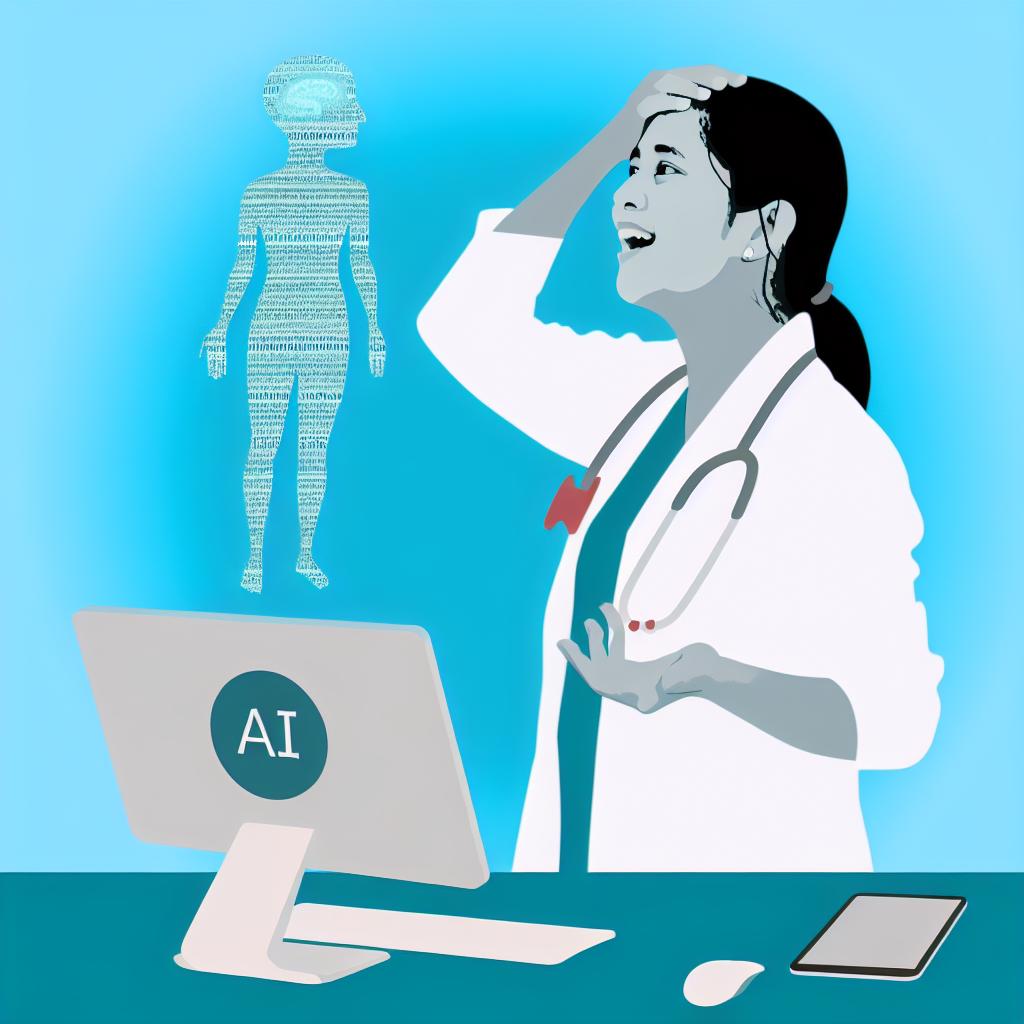NextGen Office EHR Updated for CPC+ - 2015 Cures Certified
Over the past year NextGen Office EHR/PM has been adding enhancements to it’s Best in Klas cloud based EHR/PM solution to allow practices that are...

Explore how artificial intelligence is being utilized in medicine to address physician burnout and EHR fatigue.
Physician burnout is a well-recognized issue in the healthcare industry, characterized by emotional exhaustion, depersonalization, and a decreased sense of personal accomplishment. The use of electronic health records (EHRs) has been identified as a major contributor to physician burnout, with physicians spending a significant amount of time on documentation tasks rather than direct patient care.
EHR fatigue refers to the exhaustion and frustration experienced by physicians due to the overwhelming amount of data entry and administrative tasks involved in using EHR systems. This can lead to decreased job satisfaction, increased stress levels, and ultimately, burnout.
Understanding the causes and consequences of physician burnout and EHR fatigue is crucial in developing effective strategies to address these issues and improve physician well-being.
Artificial intelligence (AI) has the potential to revolutionize healthcare and alleviate the burden on physicians. By automating routine and repetitive tasks, AI can help reduce the administrative burden on physicians and allow them to focus more on patient care. AI technologies, such as natural language processing and machine learning, can be used to analyze and extract relevant information from medical records, saving physicians valuable time and effort.
Moreover, AI-powered clinical decision support systems can assist physicians in making more accurate diagnoses and treatment plans, reducing the risk of medical errors and improving patient outcomes. AI algorithms can analyze large datasets and identify patterns and trends that may not be immediately apparent to human clinicians, enabling more personalized and effective care.
By offloading time-consuming tasks and providing valuable insights, AI can play a vital role in alleviating physician burnout and improving the overall quality of healthcare delivery.
One of the key areas where AI can make a significant impact is EHR documentation. AI-powered speech recognition and natural language processing technologies can transcribe physician-patient interactions and convert them into text, reducing the need for manual data entry. This can save physicians a considerable amount of time and effort spent on documentation tasks and allow them to focus more on patient care.
Furthermore, AI algorithms can automatically extract relevant information from unstructured clinical notes and populate EHR templates, streamlining the documentation process. This not only improves the efficiency of data entry but also enhances the accuracy and completeness of the medical records.
AI can also assist in coding and billing tasks, ensuring that the appropriate codes are assigned based on the documentation, which can help reduce errors and improve reimbursement rates for healthcare facilities.
By streamlining and automating EHR documentation, AI solutions can help alleviate the burden on physicians and enhance their overall experience with EHR systems.
The Cloud Based EHR, Nextgen Office, recently debuted their AI Generated SOAP notes. Click the link below and take a look at the Ambient Assist Demonstration.
To effectively combat physician burnout and improve physician well-being, it is essential to implement AI-driven strategies that prioritize the needs and preferences of healthcare professionals. This includes involving physicians in the development and implementation of AI technologies, ensuring that these tools are user-friendly, intuitive, and seamlessly integrated into existing workflows.
Additionally, providing adequate training and support to physicians is crucial in maximizing the benefits of AI and minimizing any potential challenges or resistance to adoption. Clear communication and education about the capabilities and limitations of AI technologies can help build trust and confidence among physicians.
Furthermore, healthcare organizations should consider implementing AI-powered workload management systems that optimize physician schedules, distribute tasks efficiently, and provide adequate time for rest and self-care. By leveraging AI to create a more balanced and manageable workload, physicians can experience reduced stress and improved work-life balance.
By taking a holistic approach and prioritizing the well-being of physicians, AI-driven strategies can have a significant positive impact on combating physician burnout and creating a healthier work environment.
While the potential of AI in medicine is vast, there are still challenges and considerations that need to be addressed. Ethical and privacy concerns surrounding the use of patient data, algorithm bias, and the potential for AI to replace human clinicians are some of the key challenges that need to be carefully navigated.
Additionally, the successful implementation of AI in healthcare requires robust infrastructure, interoperability of systems, and data standardization. Collaboration between healthcare organizations, technology companies, and regulatory bodies is crucial in developing and implementing AI solutions that are safe, effective, and aligned with the needs of healthcare professionals and patients.
Looking ahead, the future prospects of AI in medicine are promising. As technology continues to advance, AI has the potential to further optimize healthcare workflows, improve diagnostic accuracy, enhance patient outcomes, and ultimately, reduce physician burnout.
In conclusion, harnessing the power of AI to combat physician burnout and eliminate EHR fatigue is a critical step towards creating a more sustainable and fulfilling healthcare system. By leveraging AI technologies, healthcare organizations can empower physicians to focus on what they do best - providing high-quality care to patients.
NextGen Ambient Assist is a groundbreaking AI solution designed to revolutionize healthcare documentation and elevate provider efficiency. Our game-changing AI tool is here to transform the way you document care! Dive into our latest NextGen® Demo, a guide to the extraordinary capabilities of this groundbreaking technology.

Over the past year NextGen Office EHR/PM has been adding enhancements to it’s Best in Klas cloud based EHR/PM solution to allow practices that are...

You have undoubtedly heard of the Office of the National Coordinator for Health Information Technology (ONC-Health IT) 2015 Edition Cures Update...

Access interactive patient education content from right within your EHR.NextGen Office's integration with Elsevier provides suggested instructions...